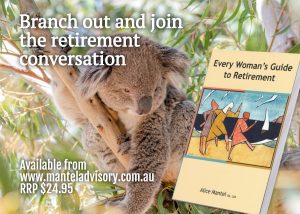It’s a myth that young people’s spending habits and lifestyles are to blame for their stagnating wealth. This is not a problem caused by avocado brunches or too many lattes.
Today’s young Australians are in danger of being the first generation in memory to have lower living standards than their parents’ generation according to a 2019 report by the Grattan Institute., titled, Generation gap: ensuring a fair go for younger Australians .
According to the report, older Australians today spend more and have higher incomes and greater wealth than older Australians three decades ago.
But living standards have improved far less for younger Australians. The wealth of households headed by someone under 35 has barely moved since 2004.
Poorer young Australians have less wealth than their predecessors and are far less likely to own a home. In contrast, older households’ wealth has grown by more than 50 per cent over the same period because of the housing boom and growth in superannuation assets.
In fact, younger people are spending less on non-essential items such as alcohol, clothing, and personal care, and more on necessities such as housing, than three decades ago.
Economic pressures on the young have been exacerbated by recent wage stagnation and rising under-employment. Older households are better cushioned from low wage growth because they are more likely to have other sources of income.
If low wage growth and fewer working hours is the new normal in Australia, then we could have a generation emerge from young adulthood with lower incomes than the one before it at the same age. This has already happened in the US and the UK.
Young Australians will also bear the brunt of growing pressures on government budgets.
Because the population is ageing, governments will have to spend more on health, aged care, and pensions. But there will be fewer working-age people for every retired person to pay for it. The number of 15-64 year-old Australians for every person aged 65 or older fell from 7.4 in the mid-1970s to 4.4 in 2014-15 and is projected to fall further to 3.2 in 2054-55.
Governments have supercharged these demographic pressures by introducing generous tax concessions for older people. A subsequent Grattan report, Super savings: Practical policies for fairer superannuation and a stronger budget has suggested that tax breaks on superannuation are excessively generous and should be wound back to help fix the budget.
Super tax breaks cost the budget $45 billion a year – or about 2 per cent of GDP – and will soon exceed the cost of the age pension.
These tax breaks are not well targeted. Two-thirds of their value benefit the top 20 per cent of income earners, who are already saving enough for their retirement. Retirees with big superannuation accounts pay much less tax per dollar of super earnings than younger workers do on their wages.
The share of households over 65 paying tax has halved over the past two decades. And older households pay substantially less tax on the same income as younger households.
Working-age Australians are underwriting the living standards of older Australians to a much greater extent than the Baby Boomers did for their forebears, straining the ‘generational bargain’ to breaking point.
The report insists that policy changes are required. Policies to boost economic growth – such as tax reform, better education and smarter infrastructure spending – are wins for all, but especially for the young. Changes to planning rules to encourage higher-density living in established city suburbs would make housing more affordable. And a fair go for younger people means winding back age-based tax breaks for ‘comfortably off’ older Australians.
Just as policy changes have contributed to pressures on young people, they can help redress them. The time for action is now: none of us wants the legacy of a generation left behind.


